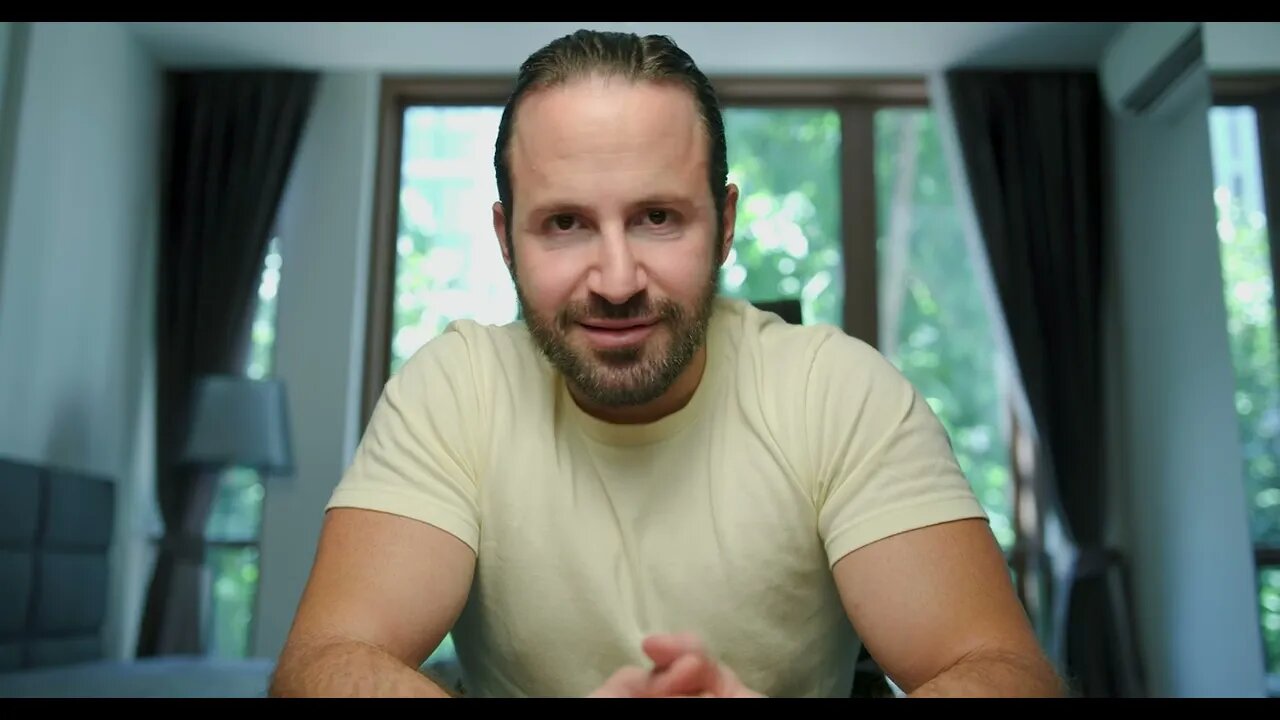Premium Only Content

My hemorrhoid problem and how I solved it.
In this video, I'll share with you my experience with hemorrhoids and how I solved my problem.
Some people are born with hemorrhoids, while others develop them during pregnancy or after childbirth. Regardless of how you acquired them, hemorrhoids are a serious problem that need to be treated as soon as possible. In this video, I'll share with you all of the steps I took to cure my hemorrhoids and ensure that they don't return. Thanks for watching!
Hemorrhoids (HEM-uh-roids), also called piles, are swollen veins in your anus and lower rectum, similar to varicose veins. Hemorrhoids can develop inside the rectum (internal hemorrhoids) or under the skin around the anus (external hemorrhoids).
Nearly three out of four adults will have hemorrhoids from time to time. Hemorrhoids have a number of causes, but often the cause is unknown.
Fortunately, effective options are available to treat hemorrhoids. Many people get relief with home treatments and lifestyle changes.
Products & Services
Book: Mayo Clinic on Digestive Health
Symptoms
Signs and symptoms of hemorrhoids usually depend on the type of hemorrhoid.
External hemorrhoids
These are under the skin around your anus. Signs and symptoms might include:
Itching or irritation in your anal region
Pain or discomfort
Swelling around your anus
Bleeding
Internal hemorrhoids
Internal hemorrhoids lie inside the rectum. You usually can't see or feel them, and they rarely cause discomfort. But straining or irritation when passing stool can cause:
Painless bleeding during bowel movements. You might notice small amounts of bright red blood on your toilet tissue or in the toilet.
A hemorrhoid to push through the anal opening (prolapsed or protruding hemorrhoid), resulting in pain and irritation.
Thrombosed hemorrhoids
If blood pools in an external hemorrhoid and forms a clot (thrombus), it can result in:
Severe pain
Swelling
Inflammation
A hard lump near your anus
When to see a doctor
If you have bleeding during bowel movements or you have hemorrhoids that don't improve after a week of home care, talk to your doctor.
Don't assume rectal bleeding is due to hemorrhoids, especially if you have changes in bowel habits or if your stools change in color or consistency. Rectal bleeding can occur with other diseases, including colorectal cancer and anal cancer.
Seek emergency care if you have large amounts of rectal bleeding, lightheadedness, dizziness or faintness.
-
 0:47
0:47
Male Enhancement Channel
1 year agoWhy Do You Have a Weak Erection #shorts
554 -
 1:22:27
1:22:27
Steven Crowder
3 hours agoGeorge Washington, Our First President | 3 in 3 Special
160K121 -
 1:03:57
1:03:57
Kyle Fortch
3 hours ago $0.70 earnedDJ Chill: DJing For Jelly Roll, SOLD OUT Tour, Performing at Hometown Arena | THE ONE SHEET S1E4
10.2K3 -
![The Deep State Spied On Trump & Sabotaged 2020 Operation To Oust Maduro [EP 4440-8AM]](https://1a-1791.com/video/fwe1/94/s8/1/F/5/k/Z/F5kZx.0kob-small-The-Deep-State-Spied-On-Tru.jpg) 4:05:26
4:05:26
The Pete Santilli Show
14 hours agoThe Deep State Spied On Trump & Sabotaged 2020 Operation To Oust Maduro [EP 4440-8AM]
20.5K3 -
 41:53
41:53
Rethinking the Dollar
1 hour agoHype or Hope? Will THE 50-YEAR FORT KNOX GOLD SCANDAL BE EXPOSED?
5.83K4 -
 1:32:36
1:32:36
Game On!
16 hours ago $8.63 earnedPresident Trump TAKES OVER the Daytona 500!
44.4K13 -
 21:35
21:35
DeVory Darkins
3 days ago $25.28 earnedMitch McConnell TORCHED as Secretary of HHS is sworn in
134K190 -
 1:20:04
1:20:04
Tim Pool
4 days agoGame of Money
183K12 -
 4:48
4:48
Cooking with Gruel
17 hours agoThe Perfect Bacon
24.9K5 -
 11:49
11:49
Reforge Gaming
4 hours agoXbox - Next Game on PlayStation?
17.6K4